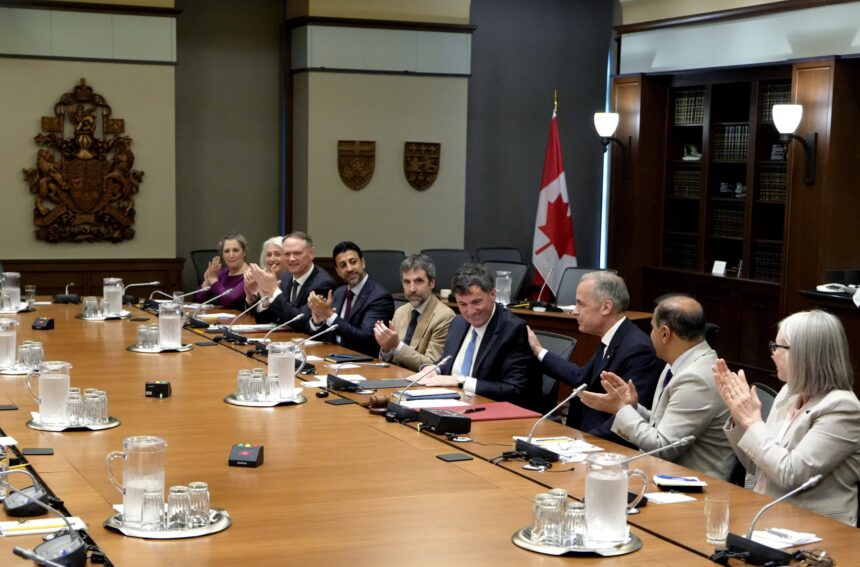In a high-stakes meeting yesterday at the Prime Minister’s Office, Mark Carney huddled with his senior cabinet members to craft a response to the looming Canada Post work stoppage. The Canadian Union of Postal Workers (CUPW) served formal strike notice late Monday, triggering a 72-hour countdown to what could become the first major labor challenge of Carney’s administration.
“We recognize essential services must continue while respecting workers’ right to collective bargaining,” Prime Minister Carney stated following the three-hour emergency session. “My government remains committed to finding a resolution that serves all Canadians.”
The strike notice comes after six months of increasingly tense negotiations between CUPW and Canada Post management over wages, pension reforms, and workplace safety concerns. Union president Ellen Crawford emphasized that postal workers have faced stagnant wages despite handling record parcel volumes during the past three years.
“Our members kept this country connected through multiple crises, yet management refuses to acknowledge their contributions with fair compensation,” Crawford said at a press conference in Ottawa. “We don’t take job action lightly, but we’ve exhausted other options.”
Labour Minister Patricia Gonzalez has been tasked with facilitating renewed talks between the parties. Sources within the Canada News circuit indicate the government is reluctant to legislate postal workers back to work, preferring instead to encourage a negotiated settlement.
“The Prime Minister understands the economic implications of a prolonged postal disruption,” noted Daniel Westbrook, Director of the Canadian Labour Institute. “But unlike previous administrations, he appears to be giving collective bargaining a chance to work before considering legislative intervention.”
Canada Post spokesperson Martin Chen confirmed contingency plans are in place to process pension and social assistance cheques regardless of job action. However, regular mail delivery and parcel services would face significant delays across the country.
The strike threat has already sent ripples through the business community. The Canadian Federation of Independent Business reports that 68% of small businesses still rely heavily on postal services for invoicing, payments, or product delivery.
Financial analysts watching politics note this represents a crucial moment for Carney, who campaigned on promises of economic stability while respecting labor rights. His approach to this dispute could set the tone for government-labor relations throughout his mandate.
As the strike deadline approaches, many Canadians are wondering about the practical impacts. During previous postal disputes, alternative delivery services saw massive volume increases, though often with substantial price premiums that disproportionately affected rural communities.
The federal cabinet will reconvene tomorrow morning as the government weighs its options against the backdrop of rising economic concerns. With both postal management and union leadership seemingly entrenched in their positions, how will Carney balance the competing interests of labor rights and economic stability in his first major domestic challenge?










